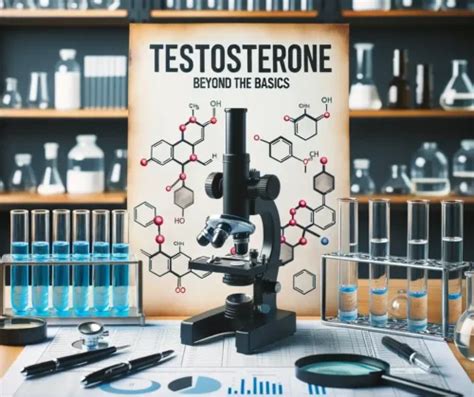What specific micronutrients are most critical for supporting healthy testosterone levels in men?

Understanding Testosterone and Its Nutritional Foundation
Testosterone, the primary male sex hormone, plays a pivotal role in more than just reproductive health. It influences muscle mass, bone density, fat distribution, red blood cell production, mood, and energy levels. While factors like age, lifestyle, and genetics certainly impact testosterone, a lesser-known but equally critical influence is the availability of specific micronutrients. A deficiency in these essential vitamins and minerals can significantly impair the body’s ability to produce and regulate this vital hormone, leading to a cascade of negative health outcomes.
For men seeking to maintain or optimize healthy testosterone levels, understanding which micronutrients are most impactful and how to ensure adequate intake is crucial. This article delves into the key players in the micronutrient landscape that are indispensable for robust testosterone production.

Zinc: The Essential Mineral for Hormone Synthesis
Perhaps no other mineral is as frequently cited for its role in testosterone production as Zinc. It is an indispensable cofactor for over 300 enzymatic reactions in the body, many of which are directly involved in hormone synthesis and regulation. Studies have shown a clear correlation between zinc deficiency and low testosterone levels.
- Mechanism: Zinc is crucial for the production of luteinizing hormone (LH) by the pituitary gland, which in turn signals the testes to produce testosterone. It also inhibits the enzyme aromatase, which converts testosterone into estrogen, thereby helping to maintain a favorable testosterone-to-estrogen ratio. Furthermore, zinc is involved in prostate health and sperm quality.
- Food Sources: Oysters are an incredibly rich source. Other excellent sources include red meat (especially beef and lamb), poultry, nuts (cashews, almonds), seeds (pumpkin, sesame), legumes, and whole grains.
Vitamin D: The Sunshine Hormone’s Role in Testosterone
Often referred to as the ‘sunshine vitamin,’ Vitamin D is unique because it functions more like a steroid hormone in the body. Receptors for Vitamin D are found on almost every tissue and cell, including those involved in testosterone production. Widespread Vitamin D deficiency is a global health concern, and its impact on male hormone levels is increasingly recognized.
- Mechanism: Vitamin D directly influences the Leydig cells in the testes, which are responsible for testosterone production. Research suggests that adequate Vitamin D levels are positively correlated with higher free (bioavailable) testosterone levels. It also plays a role in reducing sex hormone-binding globulin (SHBG), which binds to testosterone, making it unavailable for use.
- Food Sources: The primary source is exposure to sunlight. Dietary sources include fatty fish (salmon, mackerel, tuna), cod liver oil, and fortified foods like milk, cereals, and orange juice. Supplementation is often necessary, especially in regions with limited sun exposure.

Magnesium: The Stress Reliever and Testosterone Booster
Magnesium is another vital mineral involved in over 300 enzymatic reactions, including those that impact energy production, muscle function, nerve function, and blood glucose control. Its connection to testosterone is significant, particularly in relation to physical activity and inflammation.
- Mechanism: Magnesium helps reduce oxidative stress, which can negatively impact testosterone production. It also improves insulin sensitivity, which is indirectly linked to healthy testosterone levels. Furthermore, magnesium binds to SHBG, similar to Vitamin D, potentially increasing the amount of free testosterone in the blood. Studies indicate that magnesium supplementation, especially when combined with exercise, can elevate total and free testosterone levels.
- Food Sources: Abundant in leafy green vegetables (spinach, kale), nuts (almonds, cashews), seeds (pumpkin, chia), legumes, whole grains, dark chocolate, and avocados.
Boron: A Less-Known but Potent Ally
While not as widely discussed as Zinc, Vitamin D, or Magnesium, Boron is an essential trace mineral gaining recognition for its role in hormone metabolism. Emerging research highlights its potential to significantly impact testosterone levels.
- Mechanism: Boron appears to influence several hormonal pathways. It has been shown to increase free testosterone, reduce SHBG, and decrease estrogen levels by inhibiting aromatase activity. Some studies also suggest it may reduce inflammation, indirectly supporting overall hormonal health.
- Food Sources: Rich sources include fruits (apples, pears, grapes, prunes, raisins), vegetables (avocados, leafy greens), nuts, and legumes.

Other Supporting Micronutrients
While Zinc, Vitamin D, Magnesium, and Boron are paramount, other micronutrients contribute synergistically to overall hormonal health:
- Vitamin K2: Works with Vitamin D to support bone and cardiovascular health, and some research suggests it may contribute to testosterone production, particularly MK-4. Found in fermented foods and certain animal products.
- Selenium: An antioxidant mineral crucial for thyroid function, which profoundly impacts hormone balance, including testosterone. Found in Brazil nuts, seafood, and organ meats.
- B Vitamins: Especially B6, B9 (folate), and B12, are essential for energy metabolism and nervous system function, indirectly supporting overall endocrine health.

The Synergistic Approach to Testosterone Optimization
It’s important to recognize that these micronutrients don’t work in isolation; they often function synergistically. A deficiency in one can impact the efficacy of another, or the overall hormonal cascade. For instance, Vitamin D and Magnesium are closely related; Magnesium is required for the activation of Vitamin D.
Therefore, focusing on a holistic, nutrient-dense diet rich in a variety of whole foods is the most effective strategy. While supplementation can be beneficial, particularly for diagnosed deficiencies, it should complement, not replace, a balanced eating plan.
Conclusion
Maintaining healthy testosterone levels is fundamental to men’s overall well-being, influencing everything from physical vitality to mental clarity. While numerous factors contribute, the critical role of specific micronutrients cannot be overstated. Zinc, Vitamin D, Magnesium, and Boron stand out as essential players, directly influencing testosterone synthesis, regulation, and bioavailability. By prioritizing a diet rich in these key nutrients and addressing any potential deficiencies, men can lay a strong nutritional foundation for optimal hormonal health and an enhanced quality of life.









